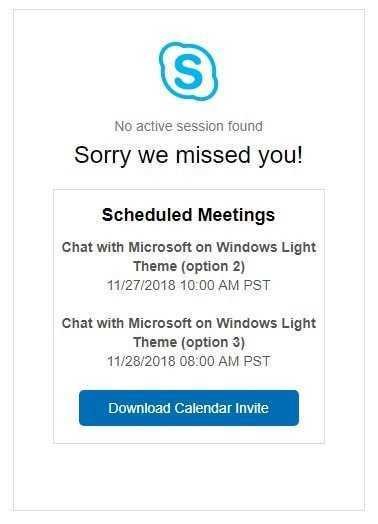Microsoft is taking its relationship with Windows Insiders to a whole new level as the company has started calling them on Skype to get feedback on specific features of the operating system.

It seems that Microsoft, through video conferencing, aims to get more detailed, detailed suggestions and bug reports, as its engineers can talk directly to operating system testers and ask them a series of questions based on certain features of Windows 10.
For example, Microsoft recently made televised calls to discuss the new Windows lightweight issue that will be available to users with the spring 19H1 update.

A description of this new feedback system, published in atMicrosoft user search link, where he explains that the call it takes a maximum of 10 minutes, but could be longer if the company needs more detail on a particular topic.
Specifically, the company states: "Your opinion is important to us. As we develop new software and services, it is critical that we receive information από πελάτες που χρησιμοποιούν τα προϊόντα μας. Μπορεί να σας ρωτήσουμε για τις experiences with existing products or for your reaction to new designs”.
What is important to know is that all calls are made anonymously and do not require personal data belonging to users, such as name, phone number or social security number (for US). However, you may be asked to join the Microsoft Customer Search Team, but the company emphasizes that this is optional.
The way Microsoft handles user feedback has long been a controversial issue, so Microsoft may be trying to improve its relationship with Insiders by contacting them directly.





